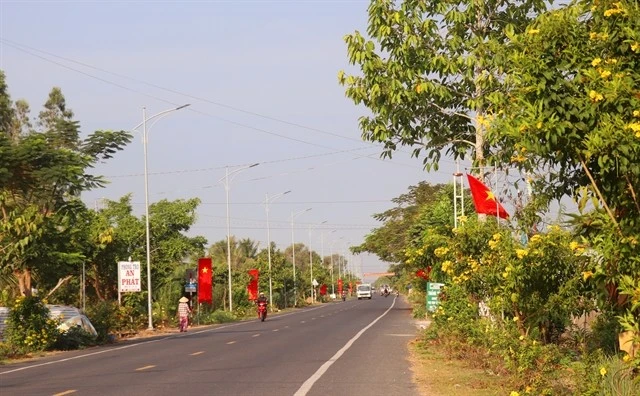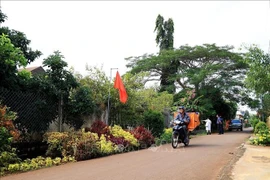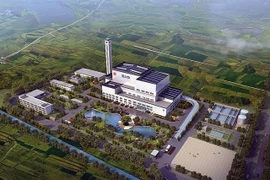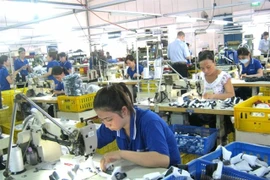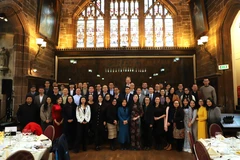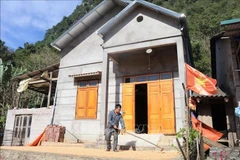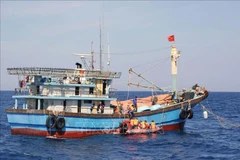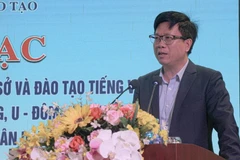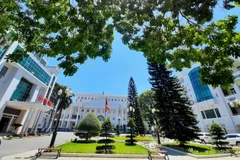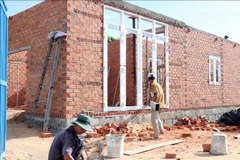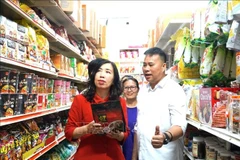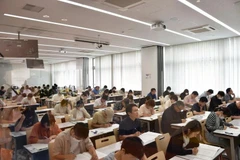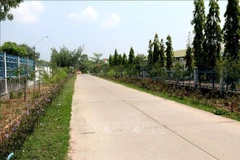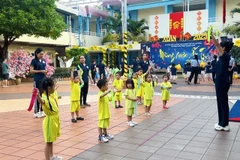Can Tho (VNS/VNA) - The number of advanced and exemplary new-style rural communes in Can Tho City has exceeded the city’s targets set for the 2021-25 period.
Under the national programme of building new-style rural areas, the Mekong Delta city aims to have eight exemplary new-style rural communes and 24 advanced new-style rural communes by the end of this year, according to Le Van Tinh, deputy head of the city's coordinating office for the new-style rural area building programme.
The city now has 10 exemplary new-style rural communes and 31 advanced new-style rural communes, while five new-style rural communes are waiting for the recognition of advanced new-style rural communes.
The city’s 36 communes have been recognised as new-style rural communes which meet the programme's 19 criteria related to infrastructure, irrigation, electricity, environment, income, education, healthcare, social security, culture and others.
The status of a new-style rural commune will be upgraded to advanced and then exemplary when it achieves higher standards across the 19 criteria.
Co Do district’s Trung Hung, which is newly recognised as an exemplary new-style rural commune, has no poor households and an average income per capita of 80 million VND (3,100 USD) a year. It is the city’s key rice exporting locality, with many rice husking mills for export.
The city has taken various measures to build new-style rural areas, improving the lives of rural people.
It has mobilised various financial sources, including State budgets, investors and local people, and has allocated funds for building advanced and exemplary new-style rural areas.
Commune-level infrastructure facilities that directly serve production and the lives of local people, including transport, electricity, education, health care and clean water, have been upgraded and developed.
The quality of the rural environment, education, health care, rural culture, social security and national defence has been improved and secured.
The city has comprehensively restructured agriculture production, established specialised farming areas and value chains for agricultural products, developed production codes for farming areas to meet export requirements, and applied high technology in agriculture production.
It has effectively implemented the country’s “One Commune - One Products” programme in combination with developing brand names and geographical indications for products.
It has recovered traditional craft villages in combination with developing community-based and agricultural tourism.
Agricultural tourism
Located in the centre of the Mekong Delta, Can Tho has a dense river and canal network and vast fruit orchards, and these are favourable conditions for developing agricultural and rural tourism.
The city has about 35 sites offering agricultural and rural tourism, 30 homestays and two community-based tourism sites.
Visiting these sites, tourists can participate in growing rice and vegetables, catching fish, rowing a boats and playing folklore games.
Phong Dien is one of the city’s districts which have strongly developed agricultural and rural tourism as it has nearly 9,000ha of fruits, accounting for more than one-third of the city’s total fruit area.
Fruit orchards offering tourism services in the district are located mostly in the My Khanh, Nhon Ai and Nhon Nghia communes and Phong Dien town and grow various specialty fruits.
Pham Van Hoang, owner of the 9 Hong Orchard in My Khanh commune, said his family’s income has increased significantly by offering tourism services in the orchard.
Previously, income depended on selling the orchard’s fruits but now his family has additional income from offering tourism services such as letting tourists harvest fruits, catch fish and make folk cakes, he said.
“By offering tourism services, my family is cooperating with neighbouring orchard owners to create diversified tourism products and join together to develop the economy,” he said.
Neighbouring orchard owners in the city have established co-operatives to offer better tourism services.
The Con Son Agricultural Tourism Co-operative in Binh Thuy district is one of the city’s most successful agricultural tourism co-operatives.
The co-operative has 20 official members and more than 60 linked members. Its members breed fish in floating cages, grow fruits and make folk cakes.
Phan Thi Song Khanh, owner of the Song Khanh fruit orchard in Binh Thuy district, said: “After offering tourism services, my family’s life has become more stable. I do not worry about the decline of the prices of my fruits because tourists visit the orchard and buy the fruits and the fruit harvest sometimes can not meet tourist demand.”
Doing tourism services has given new opportunities to rural areas, and farmers have exploited their available value to offer tourism services, she said.
The city has about 114,000ha of farmland, including 76,000ha of rice and 25,000ha of fruits.
It has identified to develop agricultural tourism, especially ecological tourism, sustainably, according to its Department of Culture, Sports and Tourism.
It has organised trips for farmers to visit other provinces such as Dong Nai and Lam Dong to learn models of offering agricultural tourism.
It has implemented policies to assist farmers to create new and high quality tourism products./.
